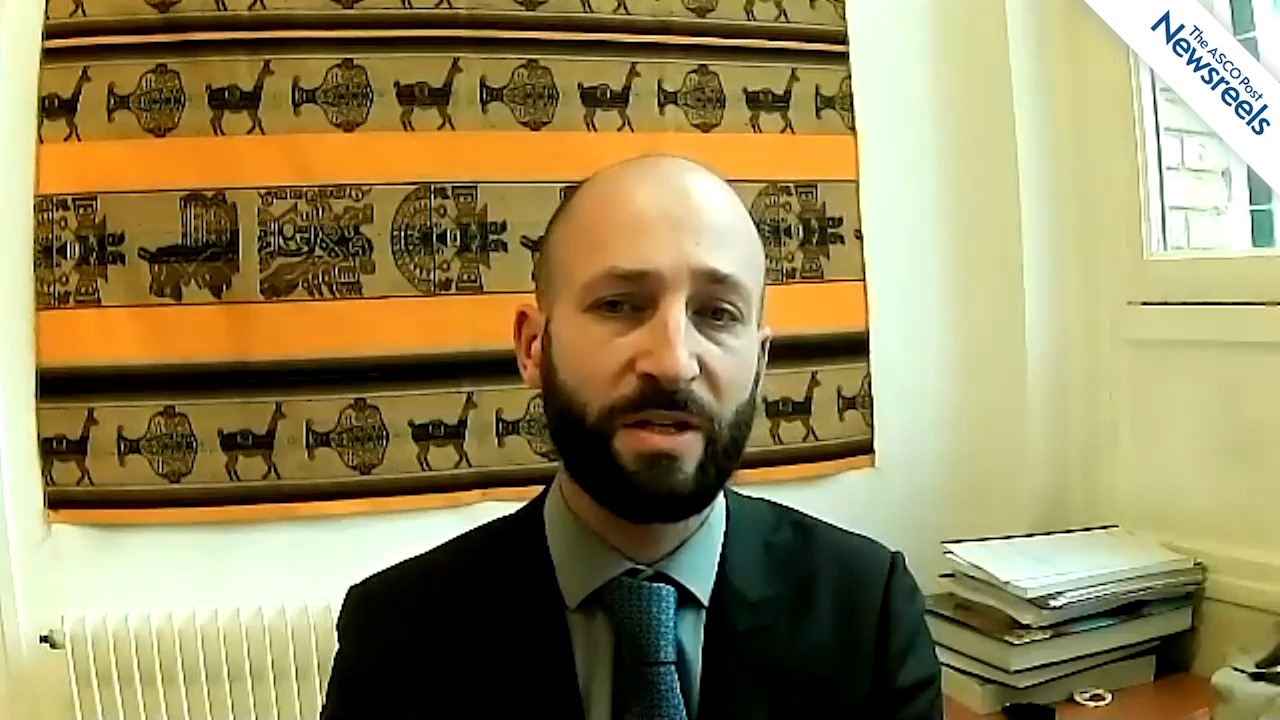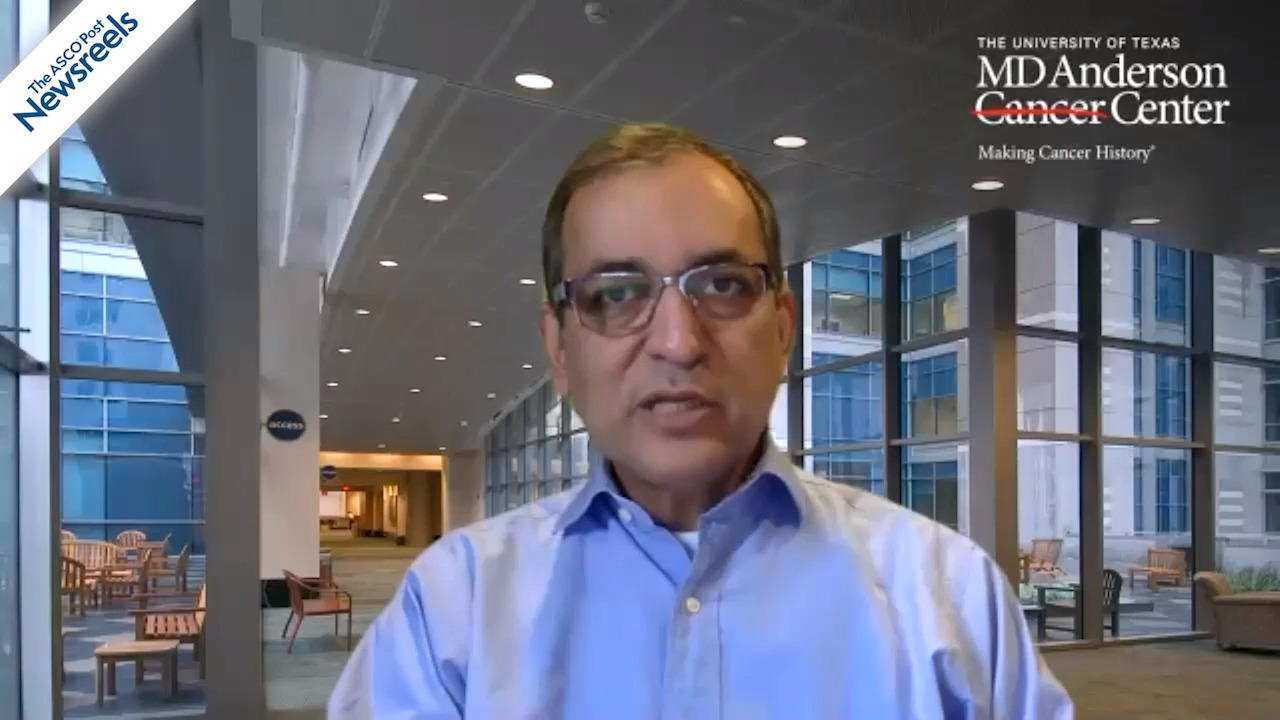Tenna V. Henriksen, PhD Candidate, on Colorectal Cancer: Circulating Tumor DNA Analysis to Improve Treatment
2021 Gastrointestinal Cancers Symposium
Tenna V. Henriksen, PhD Candidate, of Aarhus University, discusses her findings on how circulating tumor DNA may help assess recurrence risk and the benefit of adjuvant therapy, and more quickly detect early relapse after treatment in patients with colorectal cancer (Abstract 11).
The ASCO Post Staff
Afsaneh Barzi, MD, PhD, of the City of Hope Comprehensive Cancer Center and the University of Southern California, discusses reasons for the incomplete understanding of the molecular landscape of minority patients with cancer, lack of screening chief among them. This underrepresentation, Dr. Barzi says, is more marked in gastrointestinal malignancies than other solid tumors, and she recommends ways to improve the outlook.
The ASCO Post Staff
Wasat Mansoor, MBChB, PhD, of The Christie NHS Foundation Trust, discusses phase III results from the KEYNOTE-590 trial, which showed no deterioration in health-related quality of life when pembrolizumab was added to chemotherapy in patients with metastatic and unresectable esophageal cancers (Abstract 168).
The ASCO Post Staff
Romain Cohen, MD, PhD, of the Mayo Clinic and Sorbonne University, discusses a post-hoc analysis of phase III results from the CALGB/SWOG 80702 study, which showed that adding the number of tumor deposits, a negative prognostic factor, to the count of lymph node metastases may improve the accuracy of TNM staging (Abstract 10).
The ASCO Post Staff
Richard S. Finn, MD, of the UCLA Medical Center, discusses updated results from the IMbrave 150 study, which showed atezolizumab plus bevacizumab provides the longest overall survival seen in a front-line phase III study in advanced hepatocellular carcinoma, confirming this combination as the standard of care for patients with previously untreated, unresectable disease (Abstract 267).
The ASCO Post Staff
Milind M. Javle, MD, of The University of Texas MD Anderson Cancer Center, discusses phase II study results showing that the novel tyrosine kinase inhibitor infigratinib may prove to be effective in treating patients with advanced cholangiocarcinoma harboring an FGFR2 gene fusion or rearrangement (Abstract 265).





